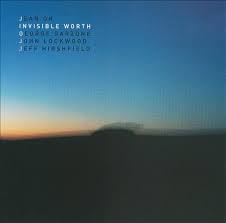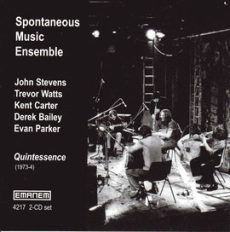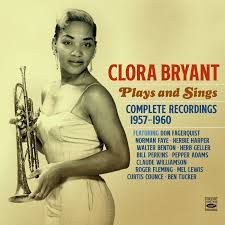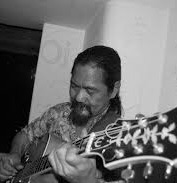
Daily Dose Of Jazz…
Jean Oh was born in Seoul, Korea on June 11, 1978 and began playing the guitar at the age of 13. He began studying music formally at Seoul Jazz Academy, and soon began playing gigs. After several years of playing with many different bands around town, he realized he needed different experiences which led him to Paris, France.
In Paris he studied jazz with Misja Fitzerald Michel, Sylvain Beof, Bernard Maury, Joe Malcolm, Emil Spanyl and Frederic Favarel. He performed in various clubs and after graduating from the music conservatory Jean moved to New York City to attend New York University where he obtained a master’s degree. During his two years at NYU, he studied with Ralph Alessi, George Garzone, John Scofield, and Gil Goldstein. He also attended the School of Improvisation Music, studying with Steve Coleman, Mark Helias, Uri Caine, David Binney, and Bily Hart.
Working his way into the New York Jazz scene he played different gigs that became his springboard to his professional career. He has played on several commercially released recordings and toured throughout the United States, Canada, Japan, South America, Philippine, Russia and has shared stages with George Garzone, John Lockwood, Jeff Hirshfield, Billy Drummond, Ralph Alessi, Ron McClure, Mike Richmond.
Guitarist Jean Oh released his debut album Invisible Worth featuring George Garzone, John Lockwood, and Jeff Hirshfield. He is pushing himself to have his voice defined in music, both as a sideman and as a band leader.
More Posts: bandleader,guitar,history,instrumental,jazz,music

Daily Dose Of Jazz…
John William Stevens was born on June 10, 1940 in Brentford, Middlesex, England, the son of a tap dancer. He listened to jazz as a child but was more interested in drawing and painting, through which he expressed himself throughout his life. He studied at the Ealing Art College and then started work in a design studio, but left at 19 to join the Royal Air Force. It was here that he studied the drums at its School of Music in Uxbridge, England and where he met Trevor Watts and Paul Rutherford, two musicians who became close collaborators.
In the mid-1960s, Stevens began to play in London jazz groups with Tubby Hayes and Ronnie Scott, and in 1965 he led a quartet. He moved away from mainstream jazz when he heard free jazz from the U.S. by musicians like Ornette Coleman and Albert Ayler. By 1966, he formed the Spontaneous Music Ensemble (SME) with Watts and Rutherford. The band moved into the Little Theatre Club at Garrick Yard, St Martin’s Lane, London, England. In 1967, they released their debut album, Challenge, however, his interest turned to quiet music, non-Western music and improvisation.
Stevens would go on to play with free improvisors Derek Bailey, Peter Kowald, Julie Tippetts and Robert Calvert, until the mid-1970s when the SME settled down to regulars Stevens, Nigel Coombes on violin, and Roger Smith on guitar. During the same period he consistently played with guitarist and songwriter John Martyn as part of a trio that included bassist Danny Thompson, recording Martyn’s 1976 Live at Leeds.
The Eighties saw John becoming an educator involved with Community Music, an organisation through which he took his form of music making to youth clubs, mental health institutions, the Lewisham Academy of Music, and other unusual places. Notes taken during these sessions were later turned into a book for the Open University called Search and Reflect.
Drummer John Stevens died at the age of 54 from a heart attack on September 13, 1994.
More Posts: bandleader,drums,educator,history,instrumental,jazz,music

Daily Dose Of Jazz…
Alan Branscombe was born on June 4, 1936 in Wallasey, Cheshire, England into a family of musicians. His father and grandfather were professional musicians and began on alto sax at age six. As a child he played drums with Victor Feldman in a talent show as a child.
During his time in the Army he played with Jeff Clyne in 1954–56. He toured and recorded with Vic Ash in 1958, recorded with Tony Kinsey the following year, and toured Japan with Stanley Black at the turn of the new decade. Alan worked with John Dankworth as pianist and vibraphonist intermittently between 1960 and 1972, including in the 1963 film The Servant.
Joining Harry South’s band at Ronnie Scott’s club in the mid-1960s, Branscombe went on to play as a sideman with Tubby Hayes, Stan Tracey, and Paul Gonsalves through the decade. He played with Ben Webster in 1965 and again in 1970, and in the Seventies he was with Albert Nicholas, toured in Europe with Stan Getz, and played with the Lamb-Premru group around 1971.
As a leader Branscombe recorded with Tony Kinsey and Tony Coe as sidemen on the album The Day I Met the Blues in 1977. As a session musician, he played tenor saxophone on The Beatles song Got To Get You Into My Life.
Pianist, vibraphonist, and alto saxophonist Alan Branscombe died on October 27, 1986.
More Posts: bandleader,history,instrumental,jazz,music,piano,saxophone,vibraphone

Daily Dose Of Jazz…
Clora Larea Bryant was born on May 30, 1927 in Denison, Texas to Charles and Eulila Bryant, the youngest of three children. As a young child she learned to play piano with her brother Mel, and was a member of a Baptist church choir. Her brother Fred left his trumpet when he joined the military, she picked it up and learned to play. In high school she played trumpet in the marching band.
She turned down scholarships from Oberlin Conservatory and Bennett College to attend Prairie View College in Houston, Texas starting in 1943. Bryant was a member of the Prairie View Co-eds Jazz Band which toured in Texas and performed at the Apollo Theater in New York City in 1944. Her father got a job in Los Angeles, CAlifornia and she transferred to UCLA in 1945, and where she first heard bebop on Central Avenue.
In 1946 she became a member of the International Sweethearts of Rhythm, an all-female jazz band, earned her union card and dropped out of school. Dizzy Gillespie became her mentor and provided her with work. She joined the black female jazz band the Queens of Swing as a drummer, and went on tour with the band.
In 1951 she worked in Los Angeles as a trumpeter for Josephine Baker and Billie Holiday. The same year the Queens of Swing became the first women’s jazz group to appear on television and performed as The Hollywood Sepia Tones. Clora was called onto Ada Leonard’s all-girl orchestra show, however, racist directed calls to the station the engagement. In 1954 she briefly moved to New York because she had lost inspiration from playing in bands.
Bryant recorded her first and only album, Gal With A Horn, in 1957 before returning to the life of a traveling musician. She worked with Louis Armstrong and Harry James, toured with singer Billy Williams and around the world with her brother Mel, had a TV show in Australia and became the first female jazz musician to tour in the Soviet Union after writing to Mikhail Gorbachev.
After a heart attack and quadruple bypass surgery in 1996, Bryant was forced to give up the trumpet but she continued to sing. She also began to give lectures on college campuses about the history of jazz, co-edited a book on jazz history in Los Angeles titled Central Avenue Sounds: Jazz in Los Angeles, and worked with children in Los Angeles elementary schools.
Trumpeter and vocalist Clora Bryant, who was the only female trumpeter to perform with Dizzy Gillespie and Charlie Parker and was a member of the International Sweethearts of Rhythm, died at Cedars-Sinai Medical Center in Los Angeles on August 25, 2019, after suffering a heart attack at home.
More Posts: bandleader,history,instrumental,jazz,music,trumpet,vocal

Daily Dose Of Jazz…
Edgar Avenir was born on May 25, 1950 in Diliman, Quezon City, Philippines. As a child he grew up in the University of the Philippines and lived in Area One of the campus. As a young guitarist, Avenir played with the renowned jazz pianist and composer Bong Peñera, and the Sangkatutak Band, whose members included Cariño, Ivy Violan and Richard Merk. His neighbors included Ed “Sarge” Cariño and John Lesaca, both of whom would later play with Avenir in various bands.
While he sessioned for pop acts like the Apo Hiking Society, his associations with fellow jazz musicians allowed him to explore the more eclectic side of his music. His move to jazz had him rubbing shoulders and exchanging notes with Pinoy jazzmen like Sandra Lim Viray, Jun Viray, Romy Posadas and Roger Herrera.
An excellent musician who could play with anyone, Avenir regularly performed with singer Zenaida Celdran and De la Calzada at La Cuisine Francaise in Makati. Celdran took care of Avenir in the last few months of his life. He was always willing to help fellow artists who wanted to learn more about music.
Still playing until August even though he was ill, guitarist Edgar Avenir, affectionately known as Koyang, died on Saturday, September 17, 2017 of pneumonia arising from lung cancer. He was 61.
More Posts: guitar,history,instrumental,jazz,music



